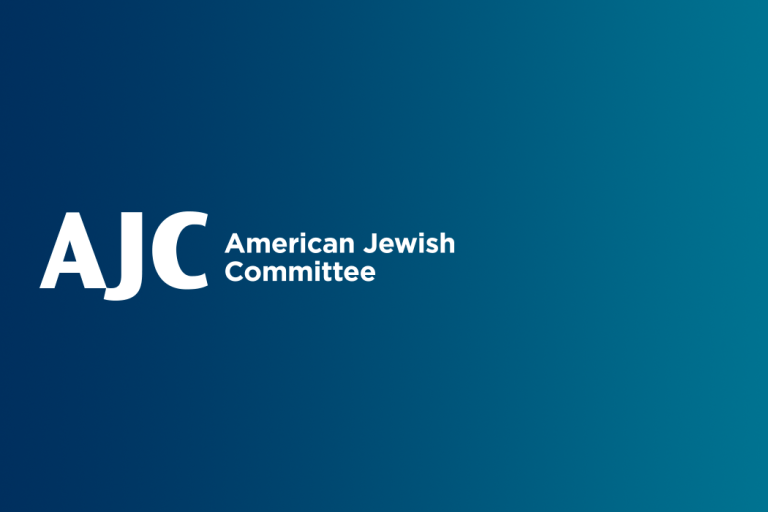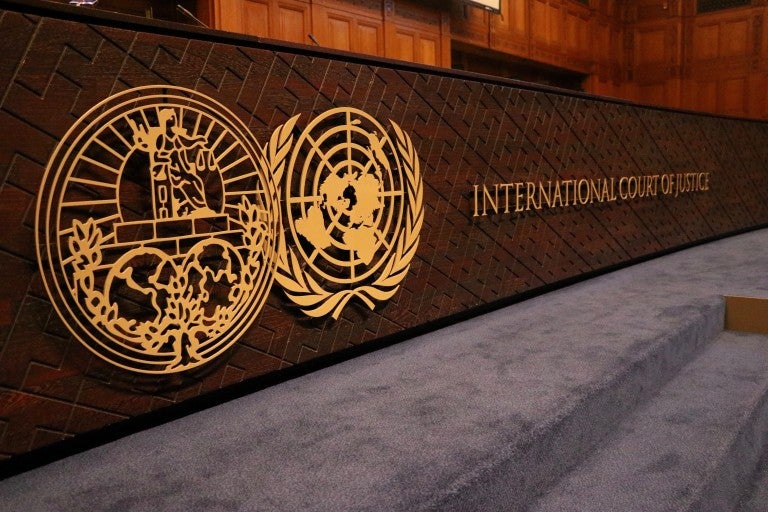December 7, 2023 — New York, NY
American Jewish Committee’s (AJC) Jacob Blaustein Institute for the Advancement of Human Rights (JBI) and the United Nations Special Adviser on Prevention of Genocide brought together senior diplomats this week to mark 75 years since the signing of the Genocide Convention, including representatives from Rwanda and Bosnia and Herzegovina. During the event, several of the diplomatic leaders called for greater political will to confront ongoing signs that communities that have previously experienced genocide continue to face hatred and violence, noting rising global antisemitism and anti-Muslim bigotry.
The JBI event, “An Afternoon with Raphael Lemkin,” recalled JBI’s and AJC’s longstanding efforts with Lemkin and work to ensure the United Nations recognized his legacy. Lemkin has been called “the father of the Genocide Convention.” His life’s ambition was to “safeguard the very existence” of national, racial, ethnic, and religious groups and to deter those who would seek to destroy them.
“Lemkin was a Polish Jew and a universalist who believed in the rule of law as something that had to be concrete and that must apply to everyone. He personified the connection between Judaism and universal human rights that our Institute was created to advance,” JBI Director Felice Gaer recalled. She noted that Lemkin “became even more committed to his goal in the midst of and following the tragic refusal of the international community to prevent the Holocaust,” in which 49 members of his family, including his parents, were killed. She urged those motivated to action by Lemkin’s legacy to “strive for a world where the rights of all are respected and protected.”
The UN Special Adviser, Under-Secretary-General Alice Wairimu Nderitu, said that Lemkin “fought to bring the voices of victims to the halls we occupy so that they would not be forgotten and justice could be done.” She cited Lemkin’s emphasis on the need to prevent genocide, a critical component of which is recognizing the patterns of hatred and discrimination that have preceded efforts to destroy entire groups.
Under-Secretary-General Nderitu recalled that communities that have experienced genocide, notably Jews, Tutsis in Rwanda, and Muslims in Bosnia had faced discrimination and violence over long periods of time, and noted that some of these patterns are continuing. She drew attention to rising antisemitism “everywhere,” saying “we never imagined that after the Holocaust that Jewish people would walk around feeling unsafe,” and also observed ongoing anti-Muslim bigotry and genocide denial. She stressed “we need to speak about these things, and we need to speak out consistently.” She added, “We cannot continuously leave it to the communities who have faced these atrocities against them. We cannot allow them to face it, and then expect them to then stand in that space and keep defending themselves, defending, first, that it happened, and then to defend themselves from it happening again.”
JBI Director Gaer said of Special Adviser Nderitu, “you have been a critical voice speaking out against and warning of the danger posed by rising global antisemitism, particularly Holocaust denial, as well as genocide denial and other forms of identity-based hatred which pose such a threat to human rights and societies.” She expressed appreciation that the United Nations, as represented by Special Adviser Nderitu, had recognized Lemkin’s important legacy and resolved to continue his work.
AJC’s Jacob Blaustein Institute for the Advancement of Human Rights (JBI) works to combat religious intolerance, end torture, and oppose all forms of discrimination, issues of central importance to the Jewish community and beyond. We protect human rights around the world by engaging with governments, diplomats, the United Nations and other international organizations, and civil society partners.
AJC is the global advocacy organization for the Jewish people. With headquarters in New York, 25 offices across the United States, 14 overseas posts, as well as partnerships with 38 Jewish community organizations worldwide, AJC’s mission is to enhance the well-being of the Jewish people and Israel and to advance human rights and democratic values in the United States and around the world. For more, please visit www.ajc.org.
###


